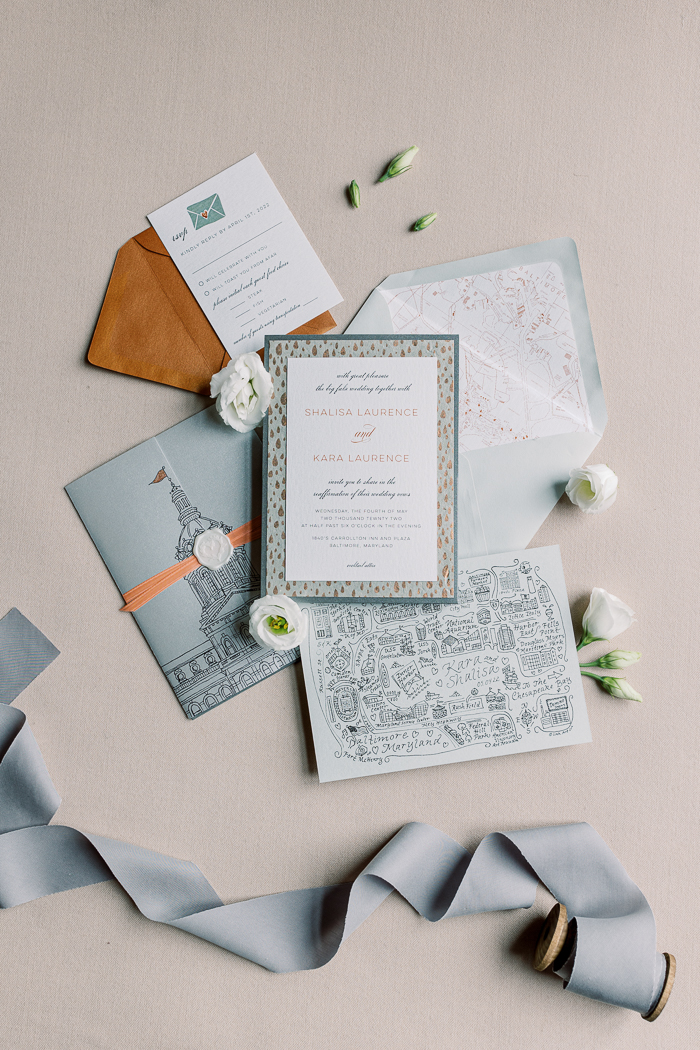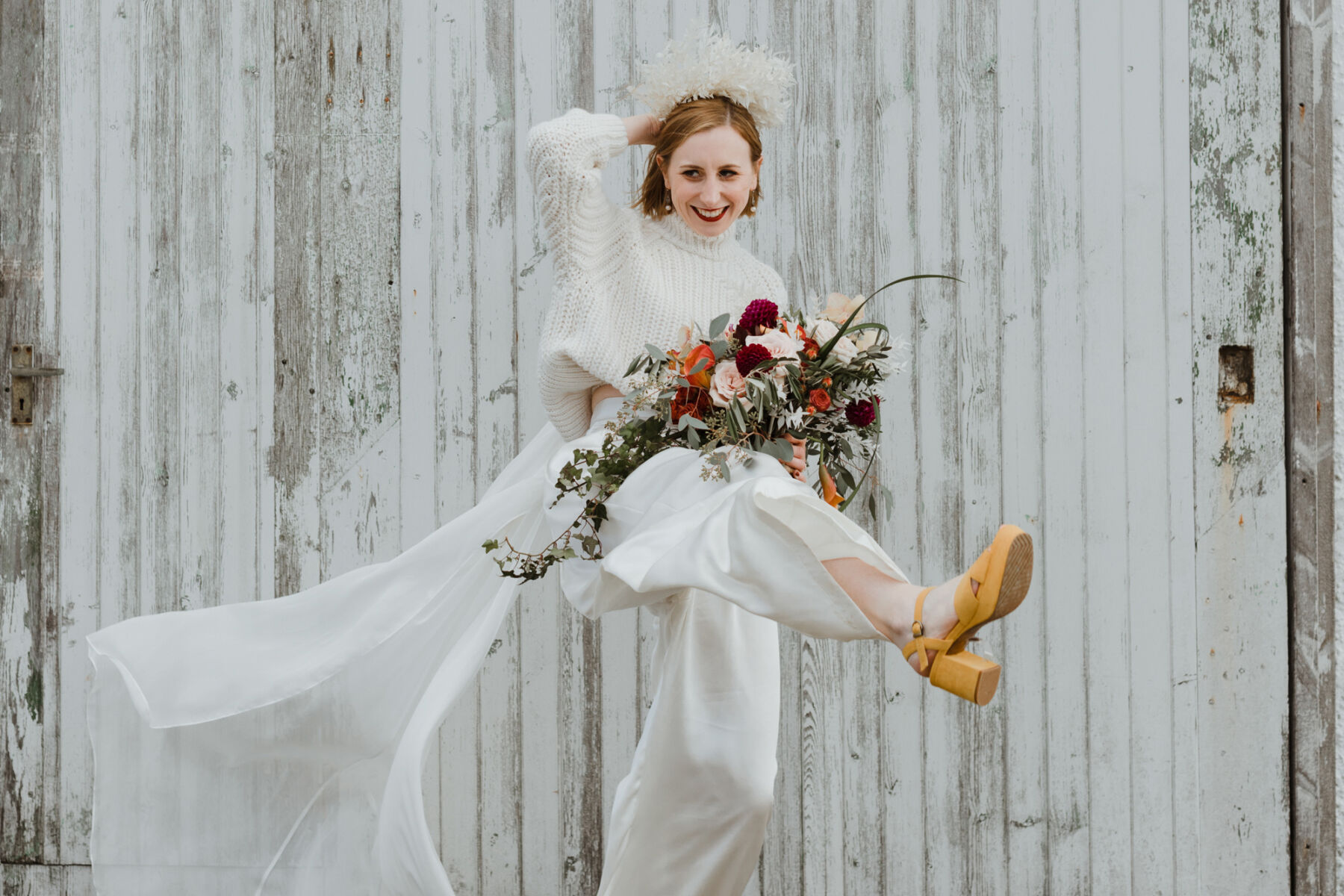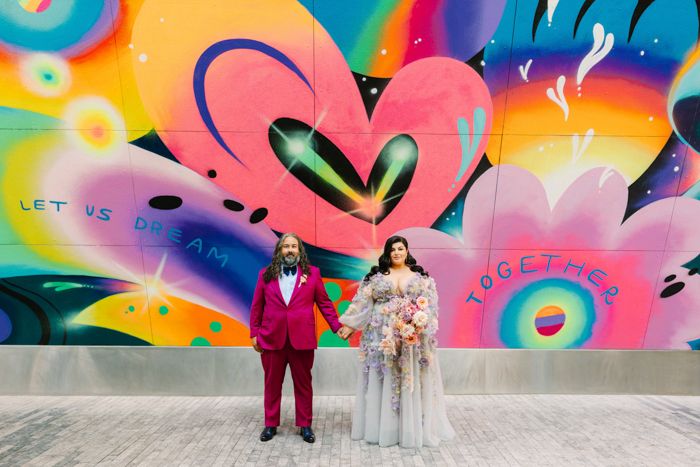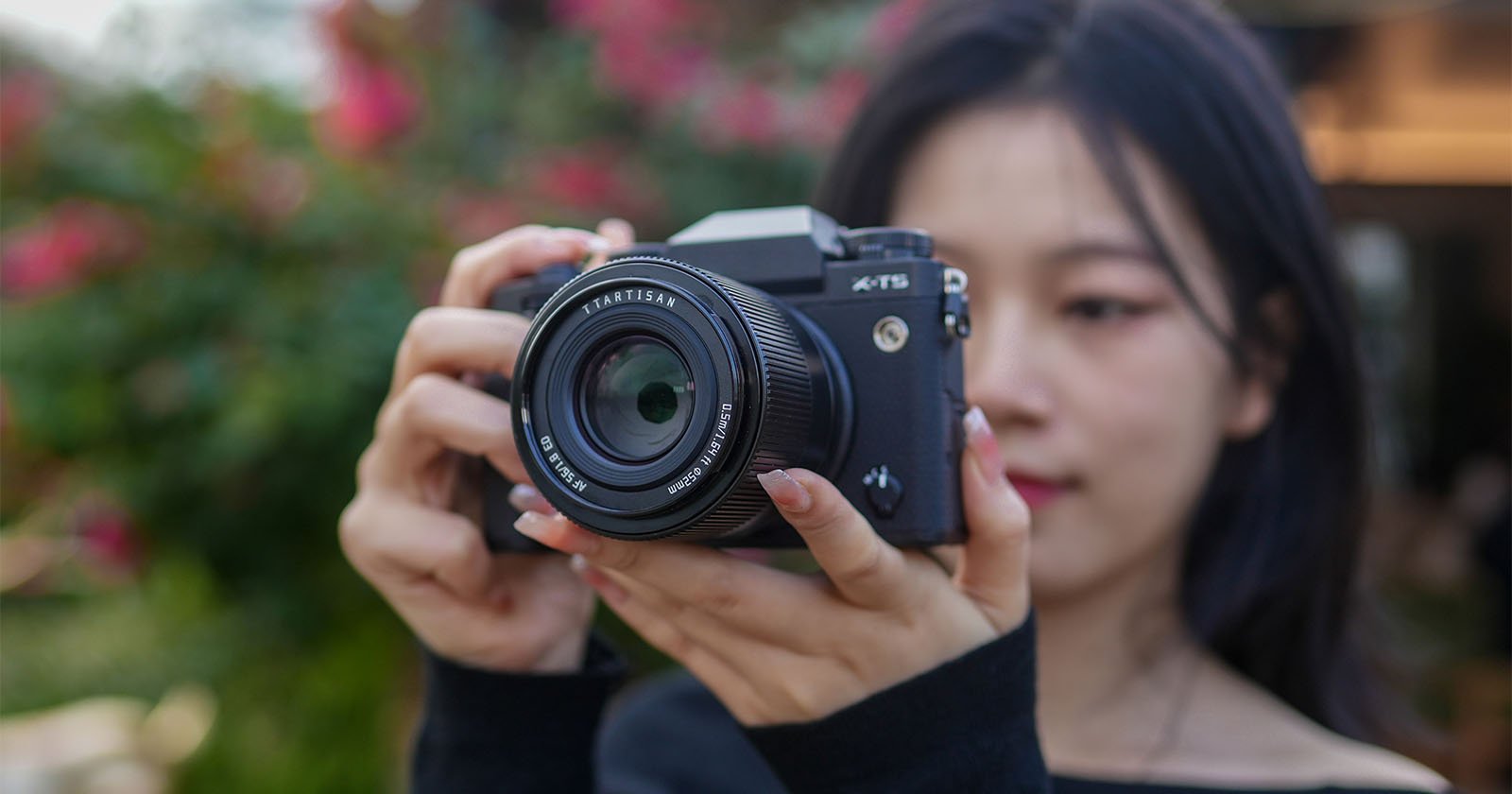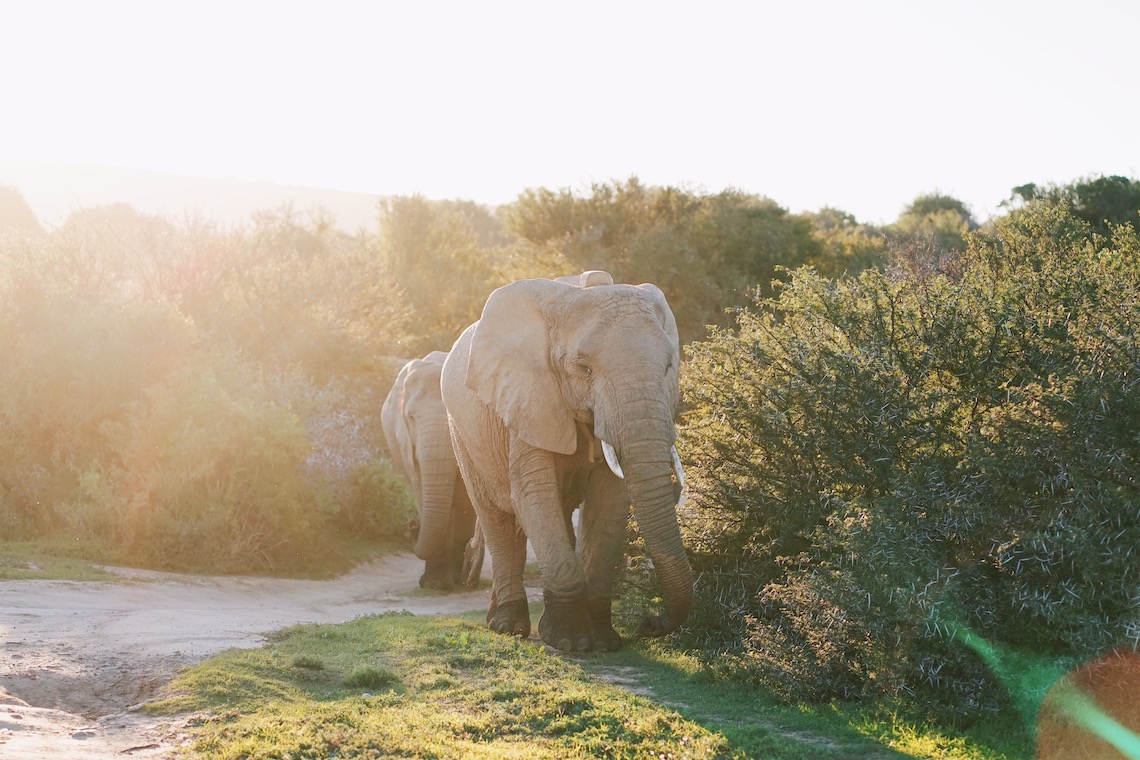
We believe the wedding industry can pave the way to a more ethical, eco-friendly and sustainable future. But journeying that path will require defying age-old wedding traditions. Ditching trends for the good of the planet and those who live here. One wedding tradition we wish would fade away is the rental of elephants (and other animals) at weddings.
To amplify this plea, we share the expertise and intimate knowledge of Sangita Iyer. A conservationist and founder of Voice for Asian Elephants Society, Sangita is not only well-versed in animal welfare, but also raised in a culture that cherishes such traditions. In this op-ed, she sounds the alarm about renting animals at weddings. In addition, Sangita offers new ideas we hope become alternative traditions to the use of elephants and the like.

Choose creative decor instead of living elephants at your wedding. Photo by Sanaz Riggio via Bridal Musings
A Compassionate and Kind Wedding by Sangita Iyer
Elephants are considered the embodiment of Lord Ganesh. A Hindu God with an elephant face, Lord Ganesh is revered as the remover of obstacles. In ancient times, they played a critical role in warfare, when there were no weapons of destruction like we have today. Elephants were used for logging and hauling. Meanwhile, horses were used for carrying the goods on their back. All of this when there were no advanced machinery or automobiles for transportation. In fact, these animals were even used in cultural festivals when the world had no access to the science and knowledge regarding their intelligence, sociability, and their propensity to feel emotions. And so evolved the practice of using elephants and horses in weddings, especially Indian weddings. But let’s examine the suffering that animals endure.

Photo by Claire Eliza via Bridal Musings
Cultural Practices that Drive Animal Cruelty
Don’t get me wrong. As someone who was born and raised in India, I love some of the traditions. The colors, the baraat, the dhols, the dances, and of course, the delicious food. I’m also aware that as overseas Indians, we desperately want to cling to traditions. At the same time, ahmisa – nonviolence – grounds Indian culture. Hindu philosophies preach compassion for all sentient beings. However, the paradoxes are stark. And, many people seem to be unaware of how cultural practices can be torturous to animals.
The offerings of royalweddingIndia.com, in particular, blow me away. The “lawazama” tradition is being glorified as, “an elaborate wedding procession is planned and created with Bands, Men with Mashal, ladies carrying lanterns, Animals including Elephants, Elephants with royal Seat and buggies, Dressed Camels, Horses with Man with Flags, Marching Drummers, Musicians, Bands, Dancers, mobile flower canopies, perfume sprays, Fireworks, Palanquin etc.”
According to ElephantVoices, a renowned elephant advocacy group, “Captive elephants are transported around in small trailers and boxcars for the travelling circus, confined in small enclosures in zoos, used as gimmicks in promotions and marketing, used to carry tourists on safari or to entertain them by playing football or polo, paraded in the streets for the ceremony and begging purposes, and chained in the sun at Temples. Many of them have been ‘tamed’ through the use of unbelievable brutality and kept under life-long human control with continued abuse.”

Photo by Elisabeth Arin Photography
Elephants Feel These Traumas
In my recently released book, Gods in Shackles – What Elephants Can Teach Us About Empathy, Resilience and Freedom, I delve deeper into the physical barbarism that is inflicted on these animals, in order to subjugate their wild nature, and the emotional traumas that elephants suffer in the absence of socialization. In the wild, they bond with their families just like us. Or, wander across vast areas to meet their nutritional and physical requirements. However, in captivity, they are deprived of their basic primordial needs.
Additionally, elephants have incredible auditory sensitivities. In fact, they can feel even the most subtle seismic vibrations beneath their feet. Study author Caitlin O’Connell-Rodwell, an affiliate of the Stanford Center for Conservation Biology says, “We think they’re sensing these underground vibrations through their feet,” she adds. “Seismic waves could travel from their toenails to the ear via bone conduction, or through somatosensory receptors in the foot similar to ones found in the trunk. We think it may be a combination of both.” So, you can only imagine how the sounds of drums, people, and even firecrackers or graffiti used in some weddings could spook the elephants and push them to run amok, which could result in tragedies at an auspicious event.
All animals have the propensity to suffer just like humans. They can feel lonely, terrified, and frustrated, and they can also feel joy and happiness. In his book, Animal Liberation, Peter Singer argues, we have a moral obligation to consider their needs before ours. Indeed, they are among the voiceless and the vulnerable. Animals are unable to speak or express in human language or in a manner that humans can understand.

Photo by Rachel Havel
There are many alternatives to using “live” elephants in wedding ceremonies:
- Using posh cars like the Lamborghini, and Porsche for the baraat.
- Installing two awesome life-size glass or crystal elephants. Each holding the traditional chrysanthemum garland to greet the guests at the gate.
- Decorating the wedding with elephant sculptures made of flowers, bamboo, wood, disco ball kind of sparkly or paper mâché elephants.
- Implementing elephant décor infused with romantic colors, for instance, dainty flower vases, candle stands, napkin holders, etc.
- Using a large statue of Lord Ganesh himself to grace the occasion.
- Making the icing on your wedding cake into a beautiful chocolate elephant.
- Using your wedding occasion to express your love for our gentle giants by asking your guests to support a conservation organization like Voice for Asian Elephants Society.

Photo by Stacy Hart
The creative possibilities are endless. Where there is a will, there is a way. And I certainly hope more people will be thoughtful in making wedding plans, considering how our actions impact the voiceless and vulnerable animals. May your wedding be cruelty-free and safe, filled with love, kindness, and compassion. Congratulations on this monumental occasion!

Photo by Will Reid Photo
Sangita Iyer is the founder of Voice for Asian Elephants Society whose mission is to protect the endangered heritage animal of India and draw attention to the plight of captive elephants everywhere. Her new book Gods in Shackles contains a foreword by Dr. Jane Goodall and her multi-award-winning film Gods in Shackles is now streaming free on WaterBear.
